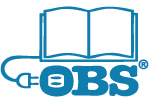OBS President to Present at the 12th International Conference on Books, Publishing and Libraries
Since its founding in 1982, OBS has been a thought leader and an innovator in the digital publishing space. The pace continues, 32 years later: OBS president and founder Laura Fillmore will be presenting on Agile Methodology and Change Management this November at the 12th International Conference on Books, Publishing, and Libraries. Agile methodology started →
